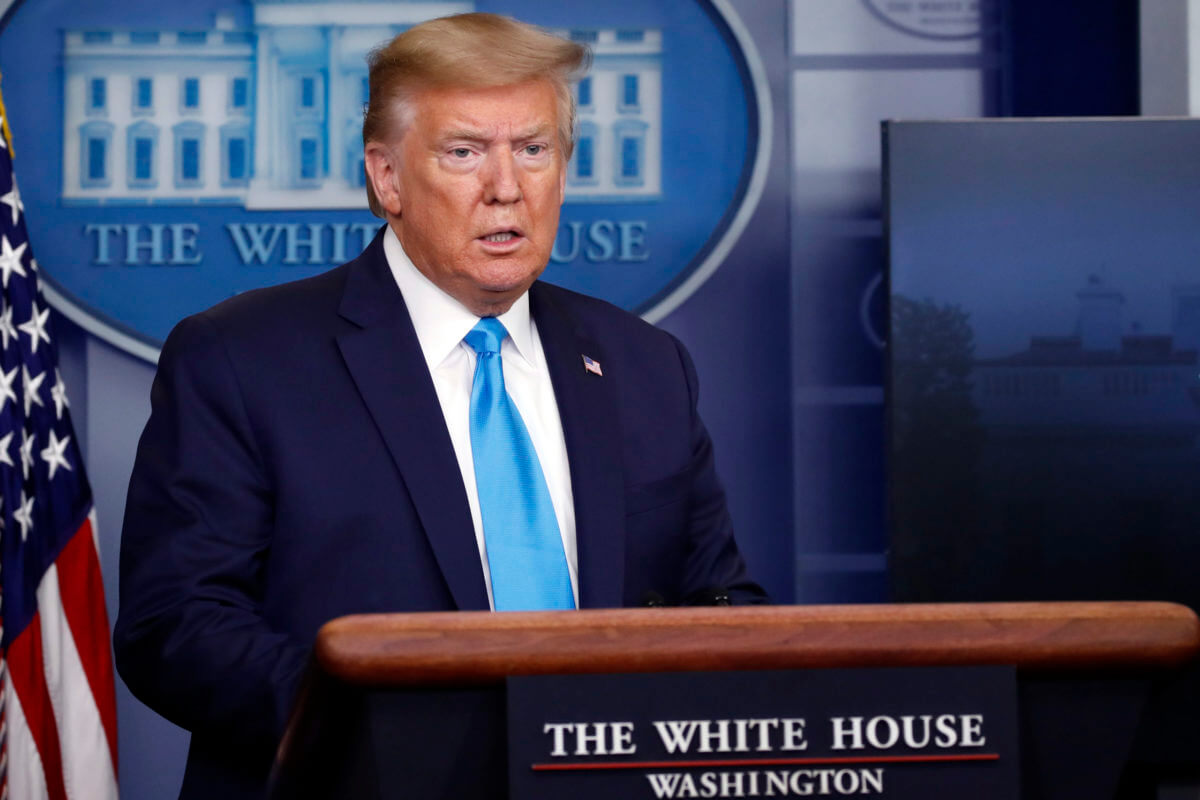
AP Photo/Alex Brandon
Can a sitting president face criminal charges? A UVA expert weighs in on question about Trump.
CHARLOTTESVILLE-Could President Donald Trump face criminal charges while in office? After his Jan. 2 call about Georgia’s election, it’s a question being asked. On Sunday, Virginia Congressman Donald McEachin called for a criminal investigation into Trump’s activities. But this is different from an impeachment hearing. Is it even possible to charge a sitting president?
The U.S. Justice Department says no. The group’s current position, dating back to a 1973 memo during Watergate, is that a sitting president cannot be indicted for a crime.
Other experts say while it’s not that simple, it’s also highly unlikely you’ll see charges pressed. University of Virginia law professor Saikrishna Prakash is an expert in presidential power and the author of “The Living Presidency,” which argues against the persistent expansion of executive powers.
Prakash pointed out that of all federal officials, the President alone enjoys this type of legal immunity.
“It turns out that every other officer is indictable, prosecutable and punishable,” Prakash explained. “There have been federal judges who were still federal judges in jail.”
But unless the Justice Department suddenly reverses its legal position in the next two weeks, it’s nearly impossible the President will face federal charges.
RELATED: Trump Call Deserves Investigation, Virginia Congressman Says
Justice Memo Doesn’t Control States
After President-elect Joe Biden takes office later this month, his Department of Justice could investigate and potentially indict former President Trump. But Prakash thinks even that outcome is unlikely.
“I don’t think the new administration’s going to want to indict Donald Trump because…then it’s not about Biden’s policies or what he’s trying to accomplish,” Prakash said. Prakash thinks an investigation or trial would just play into the political narrative touted by Trump’s supporters: that the election was stolen.
As soon as Trump started asking (what his supporters consider legitimate) questions about fraudulent votes, his political opponents accused him of a crime.
Regardless, Prakash said, Biden isn’t the type of politician that would want to draw out the controversy. “To the extent that (Biden) wants to be a healer, which is what he says…that’s not very healing.”
So the federal Department of Justice is unlikely to charge President Trump with any crimes. But as Prakash explained, the Constitution does not rule one way or the other on whether a sitting President is subject to criminal prosecution. The Justice Department offered a legal opinion. Individual states don’t have to follow it.
“You or I or the state doesn’t need to subscribe to that (legal opinion),” Prakash said. The Department of Justice “is not the Pope of legal opinions.”
As such, a state Attorney General could choose to investigate and indict a sitting President. Attorneys general also have political incentives that differ from the federal administration, Prakash said, which might motivate them to pursue a case.
“The state guys have a different set of incentives…they may not mind losing a case if they think it helps their political future,” Prakash said.
Who Has Jurisdiction Over Trump?
That said, to seriously pursue a criminal case against the President, an Attorney General would have to establish jurisdiction. In the case of the President’s recent call to Georgia Secretary of State Brad Raffensperger, this jurisdiction likely only exists in Georgia. An AG would have to consult the state and federal codes to find an appropriate criminal charge. And then they’d have to prove violation of the law in court.
Prakash said an important aspect of a criminal case is whether the accused intended to commit a crime. President Trump’s critics read in the call transcript an attempt to overturn election results, commit fraud or threaten a public official. “Legally, the President’s defense is… ‘Can’t I complain about voter irregularities?’” Prakash explained.
There is no evidence to suggest that any ballots in Georgia were fraudulently cast or improperly counted. But the President could say he was probing a legitimate suspicion, not trying to cheat.
“If they did an investigation, they’d likely be searching for testimony about the President’s intent,” Prakash explained. In any case, he said, a criminal investigation is unlikely to materialize in the next two weeks. After that, “maybe we’ll face a race to the courthouse.”

VIDEO: Your support matters!
Your support matters! Donate today. @vadogwoodnews Your support matters! Visit our link in bio to donate today. #virginianews #virginia #community...

Op-Ed: Virginia’s new Democratic majorities pass key bills to improve your lives, but will Youngkin sign them?
The 2024 Virginia General Assembly regular session has wrapped up. It was a peculiar session from the outset, with Democratic majorities in the...

Op-Ed: Why Virginia Needs A Constitutional Amendment Protecting Reproductive Freedom
Virginia’s recent election season in 2023 drew in eyes from all over the country. Reproductive freedom was on the line and Virginia remained the...

From the state rock to the state flower, here’s how Virginia got its symbols
Have you ever wondered why the Dogwood is the state flower? Or how the cardinal became the state bird? We’re here to answer those questions and more...

VIDEO: Second-gentleman Douglas Emhoff gives speech on reproductive freedom
Second gentleman, Douglas Emhoff touched on reproductive freedom not only being a woman's issue but "an everyone's issue" during the Biden-Harris...

Glenn Youngkin and the terrible, horrible, no good, very bad night
Election Day 2023 has come and gone, and while there are votes to be counted, one thing is perfectly clear: Virginians unequivocally rejected Gov....




